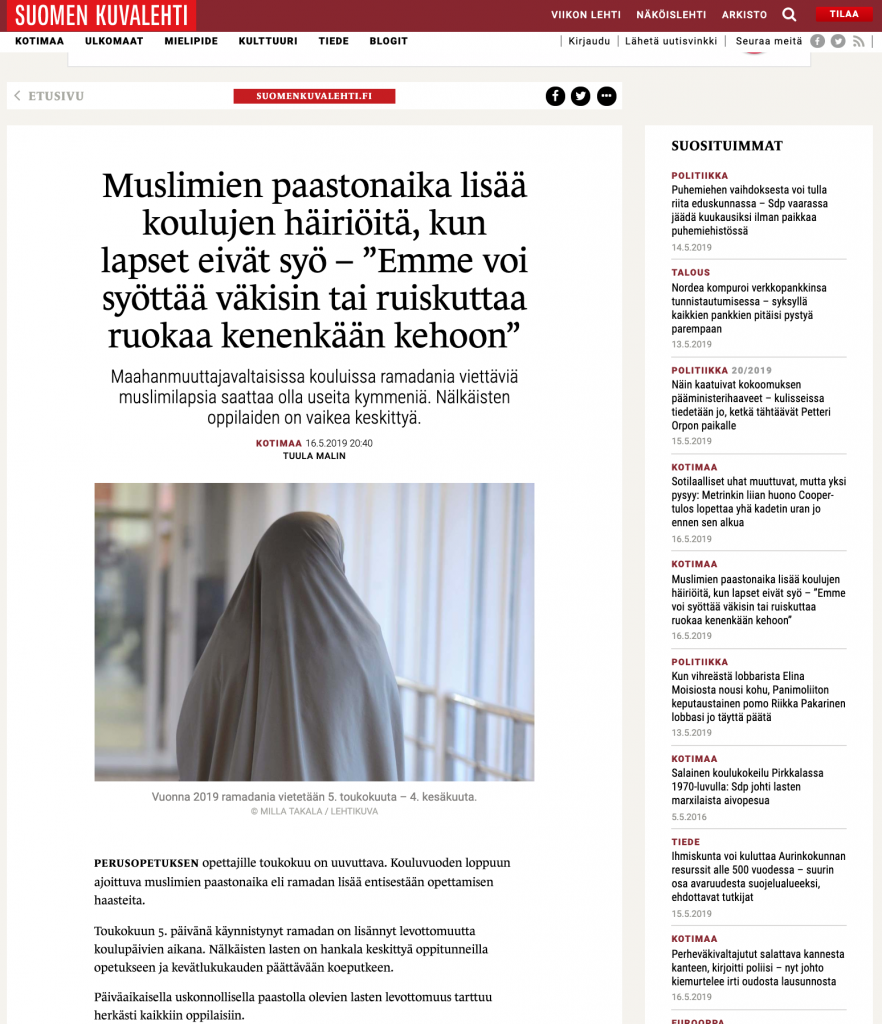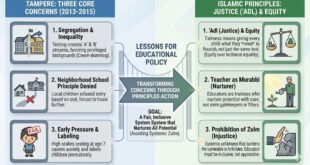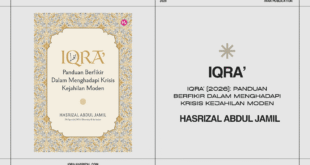A friend of mine highlighted a news about a primary school in Tampere Finland denying fasting from its pupils due to health concern and difficulties to focus in lessons.
“MUSLIM FASTING DISTURBING SCHOOLS WHEN CHILDREN DON’T EAT: WE CANNOT FORCE FOOD TO ANYBODY”
Something like this should not happened. Fasting is never meant to harm or create trouble. In fact, the objective is completely the other way around.
A Muslim is only required to fast when the person hits puberty. Even after that, for someone who is traveling, sick, breastfeeding babies, can choose not to fast. They will compensate the missed days later outside Ramadan before the arrival of the next Ramadan.
Introducing is good.
Training is good.
But a child is a child.
Parents should not force children to fast. Not only that, they must help the children to understand that even if they still choose to fast (training, wanting to participate in family’s happiness when breaking the fast, etc), they must be able to break the fast when needed, without any fear. Children need to know that it is safe for them to break the fast, freely.
This is also a significant reason why it is important to consider which timetable to use in Ramadan for Muslims who live up here in the north. Decision should not be made only based on male adults’ ability. Muslim community must remember that women, old folks and young Muslims are fasting too. It is the strongest reason at least for me, why following local timetable is not a sound decision. To fast for 20 hours and even more, is no longer fulfilling the objective fasting is prescribed by Allah.

Parents also should properly communicate the matter with school teachers.
In my case with my children, I informed each homeroom teacher about Ramadan asking permission for my kid to be exempted from sitting in dining hall with friends during lunch time at school. I even asked help from the teacher to remind my children to break their fast, if the teacher realises that the children are tired and cannot concentrate. I also informed the teacher that my kid will not fast during the school trip because traveling itself is already a valid religious reason not to fast.
I don’t take my children to pray Tarawih in the mosque because it’s too late and children must get enough sleep everyday. Waking them up for suhoor (pre dawn meal at any time before 4:25am in Oulu for 2019) is already a challenge, spring time is always troublesome for us to properly sleep when the sun never sets.

This issue was not prominent in yesteryears because Ramadan happened during summer holiday. But this year, almost the entire Ramadan is during school days. Ramadan began on the 5th of May and summer holiday will only begins on the 1st of June.
There shouldn’t be any contradiction between fasting in Ramadan with schooling. Avoid forcing minors to fast. It’s wrong.
I hope both the parents and the school can sort this thing properly. We all work together hand in hand for the interest of the children.
Hasrizal
Oulu Finland
 Saifulislam.Com Pendidikan Jalan Islah
Saifulislam.Com Pendidikan Jalan Islah




